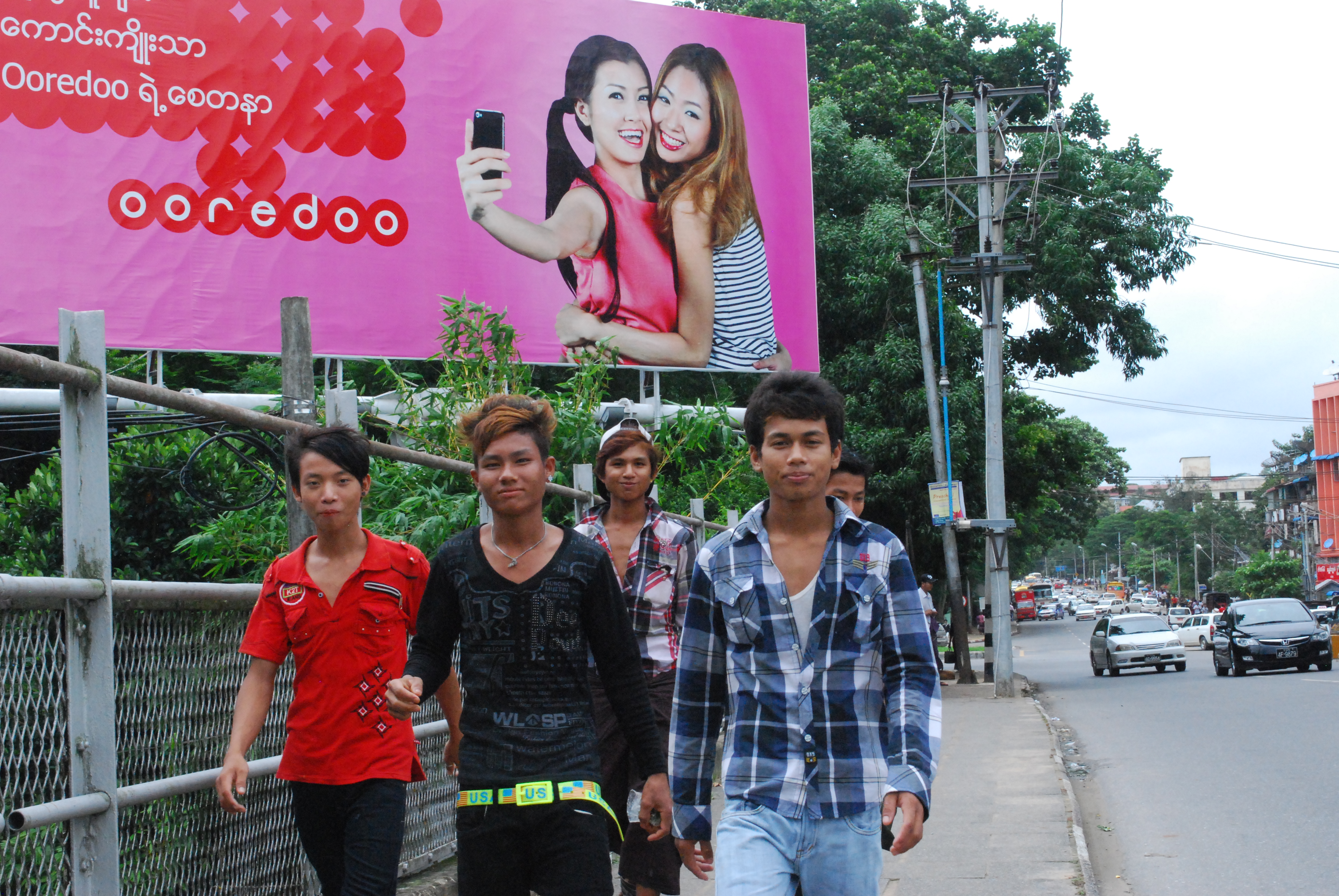Despite promises of better voice connection and access to the Internet, mobile phone users in Rangoon say that Ooredoo’s services are falling short of high expectations.
Launched in Rangoon on 2 August, Ooredoo is the first foreign company in Burma’s telecoms sector, which previously had state-run Myanmar Posts and Telecommunications (MPT) as the sole telecoms provider.
For the last few years, the cost of MPT SIM cards ranged from US$50 to hundreds of dollars, making mobile connectivity a rarity in Burma. With only one other foreign competitor, which has not yet launched, Ooredoo appeared poised to take over a large part of the market share with its allure of low-priced SIM cards starting at about US$1.50.
But less than three weeks on, customers are already disillusioned.
According to Ko Aye, the owner of a mobile phone and services shop in Tamwe Township, he has sold 1,200 Ooredoo SIM cards since the launch, but has decided to stop due to non-stop complaints from customers.
[related]
“Everyday, customers complain. We stopped selling it because they have been complaining to us a lot,” Ko Aye said. “There is no connection at all when they call other people.”
Kaung Satt, a pharmaceutical representative, travels throughout Rangoon daily for his job, and said that phone reception is unpredictable and often appears to depend on his location.
“The connection is good downtown but sometimes bad in Kyimyindaing,” he said. “Before, I was hoping to throw away my MPT card once I got Ooredoo. But I might do it the other way around now.”
When there is a connection, Myo Min, a resident from Hlaing Tharyar Township, said the quality is abysmal. “The reception is not clear and there are interferences,” he said.
Ooredoo PR officer Thiri Kyar Nyo defended the quality of the company’s services, explaining that it will improve as time goes on.
“Since 2 August, we have erected over 20 towers in Rangoon; we chose the locations for these towers based on customers’ feedback,” she said. “As the tower installations are being done every day, we expect our network in Rangoon will gradually get better.”
She added that reception in the country’s capital, Naypyidaw, and in Mandalay is “very clear”, and customers are able to watch videos without disruptions because of the high-speed Internet.
“As for Rangoon, we are currently filling the blanks by erecting towers and are gradually closer to completion,” she said.
Burma’s other foreign entrant in the telecoms scene, Telenor, is expected to launch in September and the company is hopeful that many of the issues that plagued Ooredoo’s launch would be resolved due to their “extensive testing”, said Hanne Knudsen, vice president of the Norwegian provider.
“As with any commercial launch, one can expect some issues during the initial period but we are confident that our testing has gone a long way to eliminate some of the problems commonly experienced,” she told DVB in an email.
Knudsen was unconcerned that Ooredoo would gain the upper hand with its early launch, adding that “healthy competition in the mobile industry will benefit consumers”.
For now, customers are taking a wait-and-see approach when it comes to who their chosen service provider will be.
La Myat, a Tamwe Township resident who has both MPT and Ooredoo SIMs, said that he no longer tops up his Ooredoo card since his calls never go through.
“I can’t call another Ooredoo phone with my Ooredoo phone, and I can’t call an MPT phone either,” La Myat said. “So I am not filling it up anymore because that’s 5,000 kyat that I cannot use.”
“Telenor is coming also, so I will try that as well,” he said.



